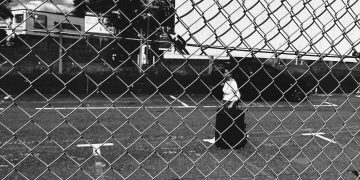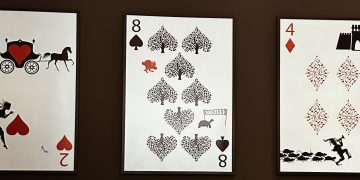Some days ago, it was the Biafra Remembrance Day. Of course, all I must know about that treacherous time in Nigeria’s history was what I was told by mother (which she learned from her parents), what I read, and from a couple in Longbenton.
You see, Graham & Mary met during the war. They were in their early twenties about that time (they later got married, I thought it was a beautiful story). From England, they were sent (amongst others) to render aid to men, women & children inflicted by the war. They were the “relief” of that time.
Biafrans had to move from city to city as a result of the explosions. To survive, you had to find the next best safe place. You had to keep moving – drive for days, & when you run out of gas, you walk. You trek. Trek until your sandals wear out & feet get blistered, trek until you’re under serene clouds that may never last a day.
Basically, they were on the run like fugitives. Nsukka, Abagana, Umuahia, Onne, Asaba, Port Harcourt, Abba, Calabar, Arochukwu, Bonny (taking over oil production in the east) among other cities that I unfortunately cannot list, all captured & left in ruins.
Of course, markets & businesses were not functional. Neither were schools or social & religious centers. It was war. Kill or be killed. Survival was the mantra. If somehow you lived to see another day & another day, next thing you’d worry about is not starving to death.
But for how long? Eventually, they ran out of food & fresh water. Shelter & clothing was cut short too. Social necessities totally ripped off. It’s like one day, you’re having a sit out with neighbors/coworkers at sunset listening to Ojukwu on the radio or some highlife medley clouded by cigars & stench of dry gin, and/or with the compound children playing around, then the next thing, you’re swatting off flies & wasps from feeding off your tetanus infested wound caused by wandering shrapnel.
There’s a popular saying, paraphrasing; “when there’s war, it’s the civilians who suffer.” These people had no choice, no blank cheque was offered them, they didn’t have the opportunity to flee or stay when war began. They had to face consequences of egoistical men (in the general sense of man), consequences they never subscribed for. These people had lives, homes, a future. They had ambitions, like you and me. But that’s all they had or ever will – because after war, you do not remain the same. War changes you forever.
As you already know, we were colonized by Britain and as expected, they had to support a country they drew sweat to build. That wasn’t the singular reason though. The Brits knew we had resources, they had to protect the oil operations and supply they had going on in the East already, you see. The United States (because of investments & alliance with Lagos, its always something for something in this world you know), the Soviet Union among others, backed Nigeria alongside the Brits. They supported the Nigerian army with arms & ammunitions. Nigerians had an abundance of that to fight a war against Biafrans who were outnumbered, mostly youths (teenage boys) & underarmed. Bombs, booby traps, all over the place. You try to sleep but not even sure you’ll see the sun rise another day.
The French (among other countries) intervened with ammunition for Biafra but that didn’t last for they were not about to trigger the Brits. Portugal also sent weapons. But never directly. They made use of nearby countries like Côte d’Ivoire & Gabon.
The starvation was grave. At a point, because of the blockade, all they had to eat was leaves & not particularly having a regard for the poisonous or non-poisonous ones because in any case, you may still die. When leaves failed, people had to eat each other.Yes, cannibalism.
Food supply was cut short. Deliberately. At this point, Nigeria was ready to do anything to make sure there was no secession. So technically, lives of helpless people was the least of their concern. At all cost.
It’s like sometimes, we expect a lot from these leaders & things. We think we are somehow valued & important, you know, democracy and all, but no.
What hurts is that we treat the civil war like it was nothing. We act like we do not remember, but we do. We act like people were not marred for life but we know. We do not teach this in schools, religious centers, institutions. Most Nigerians do not even know about the civil war which was one of the worst in the world. The WORLD. People in foreign countries are well aware of the events of that period more than we are. A staggering 2 million people lost their lives due to the blockade from famine.
The pictures from that time are gory. You hate to see it. Malnourished infants. War-torn men & women, displaced youths. You hate to see it.
I guess I’m just a Nigerian, hopelessly concerned. Nothing can be done to reverse the hands of time. It’s just how bitter life is. They say time helps with the healing, but it just helps you find ways to move on.
The least we could do right now is act concerned. Or interested. Make it make sense. Put it out there for the public, talk about the Nigerian civil war in institutions. Put it on the News & in writing. Circulate it. Parents, tell your children. Tell your friends & acquaintances. Educate people. Let them know. Or better still, just read. Read about it. You hate to see it.
I have to thank you for always reading my stuff. Means a lot.
You can sign up to get email notifications (it’s free). 😉
Until next time, love & light 💜✨







😔 but true.
I got the first picture of the civil war in a book that I read years ago (The last Card). I almost cried. If I could feel so sad about what happened and how the sad event all went, I wonder how those that really experienced it felt.
People need to know what happened as knowledge sometimes is power.
I don’t even know if that would have been the salvation needed or not but lo, what do I know.
You really hate to see it, but we need to accept that part of our history. Ignoring it won’t make it disappear.
Thanks for shining light on this part of our history, be it good or bad, it is right, and our right to know. I surely learnt a thing or two.. 😊
Thank you Magic Wand Trevor!!!
This is probably the best thing I’ve read all week, considering I rewatched the documentary on Nigerian’s history by Jide Olanrewaju.
Hi Joyce! Thank you for reading. I’m glad it illuminated some part of our history. 😊